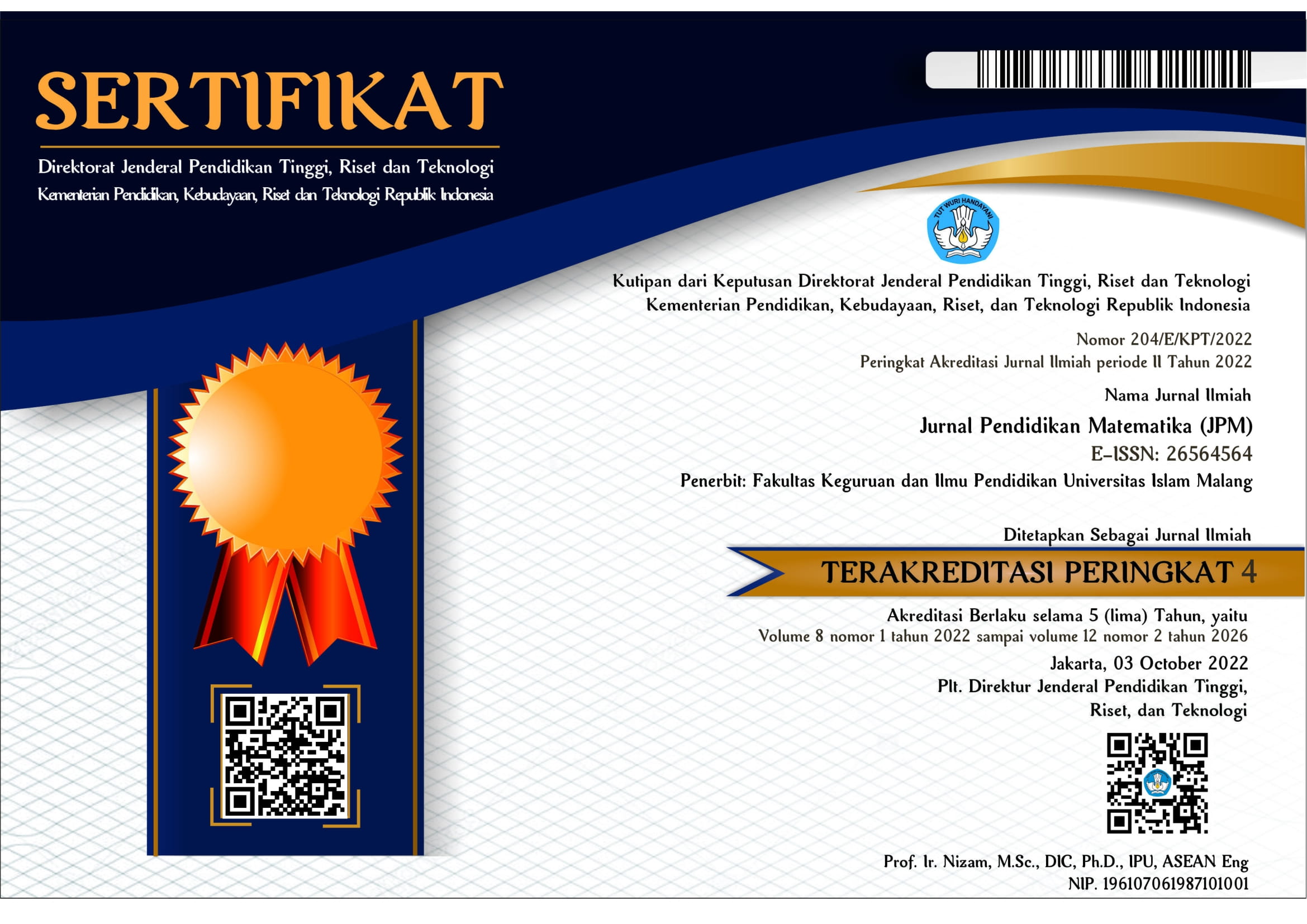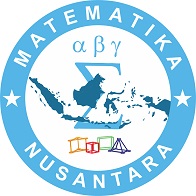LEVEL REFLECTIVE ABSTRACTION MAHASISWA DALAM PEMECAHAN MASALAH MATEMATIKA
DOI:
https://doi.org/10.33474/jpm.v3i2.594Keywords:
abstraksi reflektif, pemecahan masalah, level abstraksi reflektifAbstract
Abstraction begins with a set of objects, then the object is grouped by important properties and relationships, then aborted nature and relationships that are not important. In this study the abstraction used is a reflection abstraction is a process that refers to the ability of students to reconstruct or re-reveal and reorganize the structures created from the activity and interpretation of students themselves to a new situation. This study aims to determine the level of student reflection abstraction process. The levels of reflection abstraction in this study are: (1) Interiorization, (2) Coordination, (3) Encapsulation, (4) Generalization. The mathematical problem solving in this study includes: (a) understanding the problem, (b) devising plan, (c) carrying out the plan, and (d) looking back (checking back). This research method is quite explorative with qualitative descriptive approach. This research reveals the level of student reflective abstraction in solving math problems. The problem presented is the task of mathematical settlement (TPM). The reflective abstraction is seen from the student behavior in solving the TPM. The process of reflective abstraction is studied using the Polya step. Polya settlement phase is (1) understanding the problem, (2) planning the problem, (3) problem solving, (4) checking again.
References
Cifarelli, V. V. (1988). The role of abstraction as a learning process in mathematical problem solving. Doctoral dissertation. Purdue University. Indiana. USA.
Creswell, J. W. (2010). Research Design (Pendekatan Kualitatif, Kuantitatif, dan Mixed). Yogyakarta: Pustakan Pelajar.
Drayfus, T., Hershkowitz, R., & Schwarz, B. (2001). The construction of abstrac knowledge in inter-action. Cognitive Science Quarterly, I, 307-368.
Ferrari, P. L. (2003). Abstraction in Mathematics. Philosopical Transtions of the Royal. Society. London, 358, 1225-1230.
Goodson-Espy, T. (1998). The roles of reification and reflective abstraction in the development of abstract thought: Transitions from arithmetic to algebra. Educational Studies in Mathematics, 36, 219-245.
Goodson-Espy, T. (2008). Why Reflective Abstraction Remains Relevans in Mathematics Education Research. In Lioyd, G.M., Wilson, M., Wilkins, J.L. M. & Behm, S.L. (Eds). Proceedings of the 27th annual meeting of the North American Chapter of the International Group for the Psychology of Mathematics Education. Applachian State University.
Jirotkova, D., & Littler, G. H. (2015, April 25). Classification Leading to Structure. http://cerme4.crm.es/Papers%20definitius/3/JirotkovaLittler.pdf.
Krulik, S., Rudnick, J., & Milou, E. (2003). Teaching Mathematics in Middle School A Practical Guide. Boston.
Milas, M. B., & Haberman, A. M. (1994). Qualitative Data Analysis, Second Edition, London: Sage Publication.
Mitchelmore, M. C., & White, P. (2007). Abstraction in Mathematics Learning. Journal for Research in Mathematics Education, 19(2), 1-9.
Moleong, J. L. (2013). Metodologi Penelitian Kualitatif Edisi Revisi. Bandung: PT. Remaja Rosdakarya.
Ozmantar, M. S., & Monaghan, J. (2007). A dialectical Approach to The Formation of Mathematical Abstractions. Doi: 10.1007/BF03217457.





_-_Copy.jpg)
.jpg)
.jpg)










